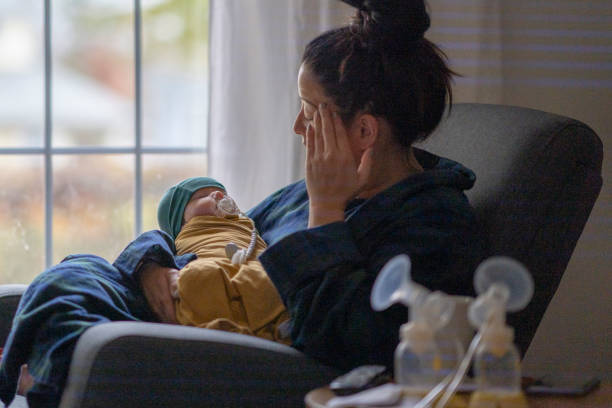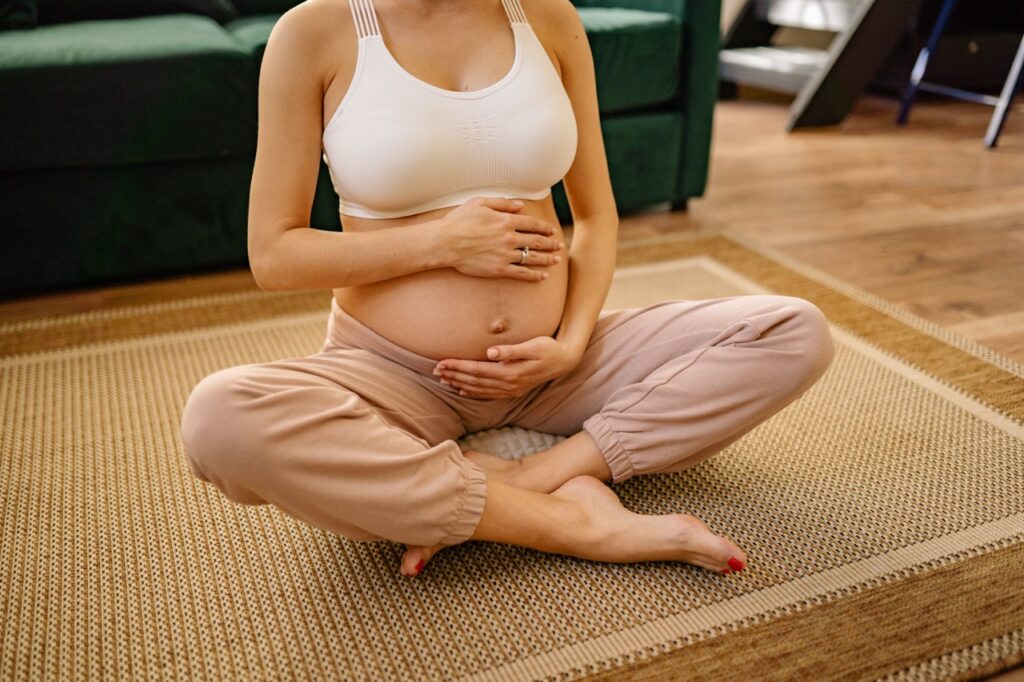Joint Health, Women’s Health
How to Manage Joint Pain During Pregnancy
Joint discomfort is a typical complaint among pregnant women. Your joints may experience stiffness and agony as your body goes through significant changes throughout pregnancy. This might be especially difficult for women who are currently experiencing other pregnancy-related symptoms. However, there are strategies to manage joint pain and make the pregnancy more comfortable.
The hormone relaxin is one of the most common causes of joint pain during pregnancy. The body produces this hormone to assist in loosening the ligaments and joints in preparation for childbirth. While this is a necessary procedure, it can cause joint pain and discomfort. Furthermore, the extra weight and pressure on the joints caused by carrying a growing baby might contribute to joint pain.

Understanding Joint Pain During Pregnancy
During pregnancy, pregnant women may feel joint pain. This pain can affect every joint in our body, but it is most typically felt in our hips, knees, and ankles.
Joint pain during pregnancy has multiple causes. Hormonal changes during pregnancy might cause our ligaments to relax, resulting in improved joint mobility. This might result in aches and pains, especially during the first and third trimesters.
Furthermore, the increased weight and weight gain during pregnancy can place additional strain on our joints, causing stiffness and discomfort. This is most obvious in the second and third trimesters.
There are a few things we can take to relieve joint pain during pregnancy. Maintaining a healthy weight and participating in regular exercise can assist in strengthening our muscles and relieve joint strain. Swimming and prenatal yoga, for example, can be extremely beneficial.
It is also critical to pay attention to our posture and avoid standing or sitting in one position for an extended period of time. Avoiding high heels and wearing supportive shoes can also assist in relieving joint pain.
It is critical to talk with our healthcare practitioner if joint discomfort becomes severe or is accompanied by swelling or redness. They may suggest further therapies, such as physical therapy or medicine, to help us feel better.
Overall, joint pain during pregnancy is a common source of difficulty for many pregnant women. We may help to alleviate this discomfort and enjoy a good pregnancy by maintaining a healthy weight, engaging in regular exercise, and paying attention to our posture.

Causes of Joint Pain in Pregnancy
Hormonal Changes: Our bodies go through considerable hormonal changes throughout pregnancy. The placental hormone relaxin helps to relax the ligaments in the pelvis, allowing the baby to pass through during birthing. This hormone, however, can also influence other joints in the body, making them more flexible and susceptible to injury.
Increased Weight and Weight Gain: As the baby grows, the weight of the uterus and the developing fetus puts strain on the pelvic and lower back joints. This can cause pain and discomfort, especially in the third trimester.
Changes in Posture: As the belly swells, pregnant women’s weight shifts forward, putting additional strain on the lower back and hips. This can cause pain and discomfort, especially if the lady is standing or walking for an extended amount of time.
Fetal Movement: As the baby grows and becomes more active, its movements can exert strain on the pelvic joints and ligaments. This can cause pain and discomfort, particularly if the baby is breech.
Finally, joint pain during pregnancy can be caused by a number of things, including hormonal changes, increased weight and weight gain, postural changes, and fetal movement. Pregnant women must take care of their bodies and seek medical attention if they feel persistent or severe joint discomfort.

Symptoms of Pregnancy-Related Joint Pain
Women commonly feel joint discomfort, pains, stiffness, numbness, back pain, low back pain, knee pain, and hip pain during pregnancy. A multitude of causes, including weight increase, hormone changes, and changes in posture, might induce these symptoms.
Knee, hip, and back joint discomfort is common, and it is commonly accompanied by stiffness and edema. Hands and feet may also experience aches and numbness. Due to the increased weight and strain on the lower back, lower back pain is prevalent during pregnancy, whereas knee discomfort can be caused by the extra weight on the knees.
Another typical symptom of pregnancy-related joint discomfort is hip pain. This can be caused by ligament and joint relaxation in preparation for childbirth. The hips, groin, and thighs are all affected by the pain.
While joint pain is prevalent during pregnancy, it is not always cause for concern. If the pain is severe or is accompanied by other symptoms such as fever or swelling, it is critical to get medical assistance.

Managing Joint Pain at Home
Posture
Maintaining proper posture may help in alleviating joint pain. We should stand and sit up straight, with shoulders relaxed and feet flat on the ground. A pregnant cushion can also be used to support our backs while sitting or sleeping.
Exercise
Exercising on a regular basis can help minimize joint pain during pregnancy. We can attempt low-impact exercises like swimming, yoga, and pregnancy yoga. These exercises can help you increase your flexibility and strength, which will help you lessen joint pain.
Stretches
Stretching can help in alleviating joint pain and increase flexibility. Stretching techniques such as hamstring stretches, calf stretches, and hip stretches can be tried. We should avoid overstretching by extending lightly.
Massage
Massages can help with joint discomfort and circulation. We can try prenatal massages or massage our muscles with a foam roller. We should massage softly and avoid applying too much pressure on our joints.
Warm Bath
A warm bath might help to relieve joint pain and relax our muscles. To relieve inflammation and enhance circulation, we might add Epsom salts to our bath.
Heating Pad and Hot and Cold Therapy
Joint pain and inflammation can be reduced by using a heating pad or hot and cold therapy. For 15-20 minutes at a time, we may want to try to apply a heating pad or a cold pack to the affected area.
Deep Breathing and Relaxation Techniques
Deep breathing and relaxation techniques can aid in the reduction of stress and tension, which can aggravate joint discomfort. To assist in calming our body and mind, we can attempt deep breathing exercises, meditation, or yoga.
Diet and Exercise
A good diet and regular exercise might help reduce joint pain when pregnant. We should consume a well-balanced diet rich in fruits, vegetables, and whole grains. Swimming, yoga, and prenatal exercises are examples of low-impact exercises.
Shoes and Sleep Position
Wearing supportive shoes that are comfortable can help alleviate joint pain. To relieve pressure on our joints, we should also try to sleep on our sides with a pillow between our legs.
We can manage joint pain at home and have a comfortable and healthy pregnancy by following these guidelines.

Medical Treatment Options
Acetaminophen
Acetaminophen is a popular pain medication that is safe to use during pregnancy. It is effective for treating mild to moderate joint pain. However, it is critical to adhere to the appropriate dosage in order to avoid any potential negative effects.
NSAIDs
Nonsteroidal anti-inflammatory medicines (NSAIDs) are not advised to be used during pregnancy, particularly during the third trimester. They can raise the risk of bleeding and harm the growing fetus.
Consult with a Doctor
If your joint pain is severe, your doctor may offer additional medications or treatments to help you manage it. Before beginning any treatment, it is critical to address any potential risks and side effects with your doctor.
To summarize, while there are medical therapy options for joint discomfort during pregnancy, it is critical to contact a doctor before beginning any drug. Acetaminophen is an effective pain reliever, however, NSAIDs should be avoided. If additional therapy is required, a doctor can make recommendations.

Concerning Symptoms and Complications
Joint discomfort is a frequent symptom that many women experience during pregnancy. It is, nevertheless, critical to be aware of any concerning signs or consequences that may occur.
If you have significant joint pain, especially if it is accompanied by premature labor, preeclampsia, high blood pressure, vaginal bleeding, or headaches, call your doctor right once. These symptoms could indicate a more serious disease that necessitates medical attention.
Furthermore, if you have nausea, cramps, fainting, or constipation in addition to joint pain, it is critical to monitor these symptoms and notify your doctor if they persist or worsen.
It’s also worth noting that some joint pain during pregnancy is natural and can be treated with easy measures like rest, exercise, and over-the-counter pain medicines. However, before taking any medicine during pregnancy, always consult with your doctor.
Overall, it is critical to be aware of any troubling symptoms or difficulties that may occur during pregnancy and to contact your doctor if you have any questions or concerns.

Post-Pregnancy Joint Pain
Many women endure postpartum joint pain after giving birth. Changes in hormones, weight gain during pregnancy, and the physical demands of labor and delivery can all contribute to this pain.
Relaxin, a hormone that softens the ligaments and joints in the pelvis to prepare for childbirth, is a major cause of post-pregnancy joint pain. Unfortunately, relaxin can also cause pain and discomfort in other joints in the body.
If you had a cesarean delivery, you may have joint pain as a result of the surgery. The incision site may be sore, and the surrounding muscles and ligaments may be strained or injured.
To manage post-pregnancy joint pain, there are several things you can do:
- Stay active: Light exercise might help keep your joints mobile and lessen pain. Walking, swimming, and yoga are all excellent choices.
- Practice good posture: Use proper posture when carrying your baby to avoid placing additional strain on your joints.
- Use heat and cold therapy: A warm compress or a warm bath can help relieve joint discomfort, while a cold compress can assist in reducing swelling and inflammation.
- Consider physical therapy: A physical therapist can help you establish a safe exercise regimen and teach you joint pain-relieving strategies.
Remember that joint pain after pregnancy is common and typically only brief. You can manage your pain and enjoy your healthy baby with the correct care and therapy.
Conclusion
Hey there, fellow moms-to-be! Let us remember that joint pain is normal during pregnancy. It’s a common companion on this journey, and trust me, you’re not alone in those aches and pains
From the moment that beautiful little life starts growing inside us, our bodies go through incredible changes. And sometimes, these changes bring along some discomfort, especially in our joints. The added weight, shifting hormones, and the body preparing for childbirth can all contribute to those twinges and aches in places we didn’t even know existed.
But here’s the silver lining – there are things we can do to make it more manageable. Gentle exercises like prenatal yoga and swimming can work wonders. And don’t underestimate the power of a good pregnancy pillow for support while you catch those much-needed Zs.


